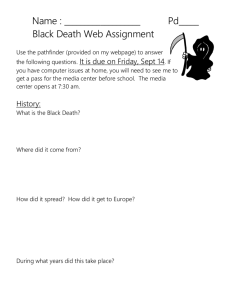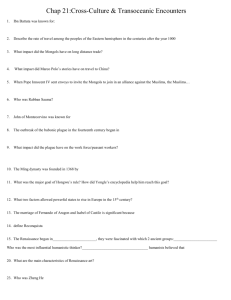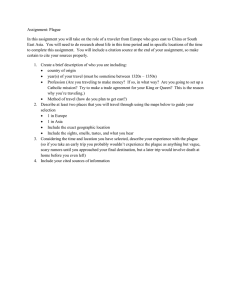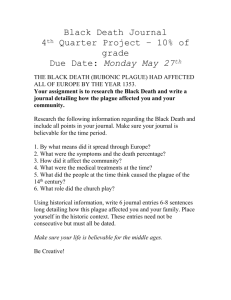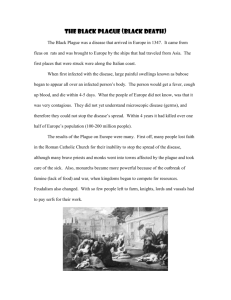Plague Socratic Discussion #1
advertisement
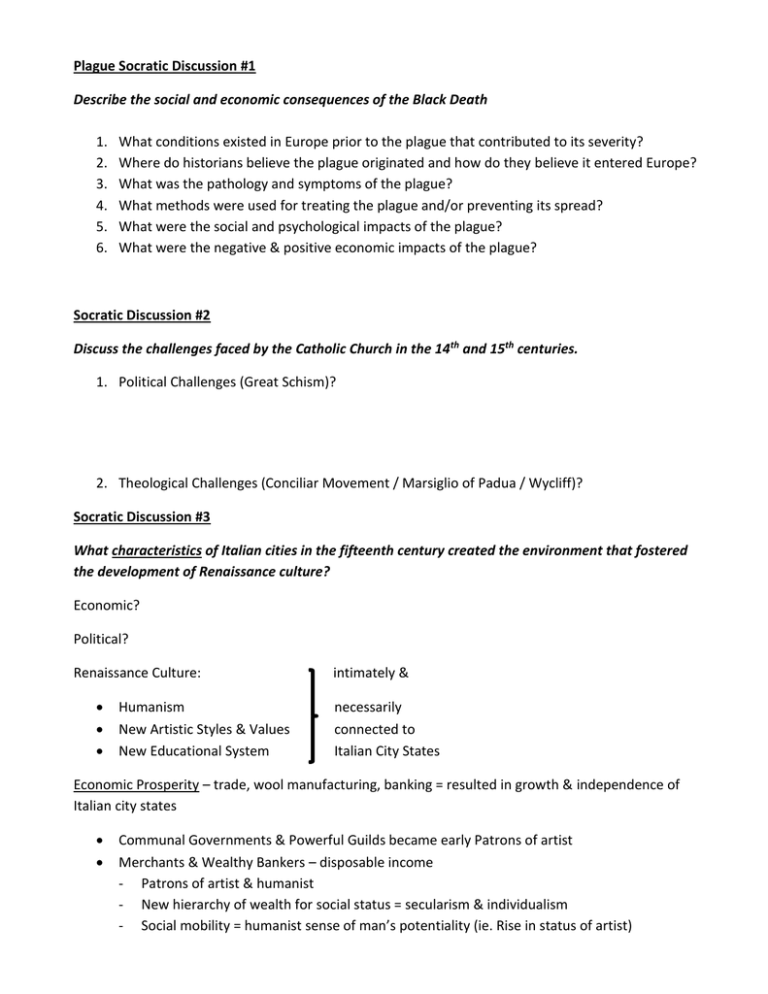
Plague Socratic Discussion #1 Describe the social and economic consequences of the Black Death 1. 2. 3. 4. 5. 6. What conditions existed in Europe prior to the plague that contributed to its severity? Where do historians believe the plague originated and how do they believe it entered Europe? What was the pathology and symptoms of the plague? What methods were used for treating the plague and/or preventing its spread? What were the social and psychological impacts of the plague? What were the negative & positive economic impacts of the plague? Socratic Discussion #2 Discuss the challenges faced by the Catholic Church in the 14th and 15th centuries. 1. Political Challenges (Great Schism)? 2. Theological Challenges (Conciliar Movement / Marsiglio of Padua / Wycliff)? Socratic Discussion #3 What characteristics of Italian cities in the fifteenth century created the environment that fostered the development of Renaissance culture? Economic? Political? Renaissance Culture: Humanism New Artistic Styles & Values New Educational System intimately & necessarily connected to Italian City States Economic Prosperity – trade, wool manufacturing, banking = resulted in growth & independence of Italian city states Communal Governments & Powerful Guilds became early Patrons of artist Merchants & Wealthy Bankers – disposable income - Patrons of artist & humanist - New hierarchy of wealth for social status = secularism & individualism - Social mobility = humanist sense of man’s potentiality (ie. Rise in status of artist) Socratic Discussion #4 Explain the ways in which Italian Renaissance humanism transformed ideas about the individual’s role in society. 1. Education in classical literature was key to developing an individual’s virtue a. Castiglione’s – Courtier b. Mirandolla’s –Oration on the Dignity of Man 2. emphasized the role of the individual in public service a. Bruni – civic virtue b. Machiavelli – The Prince 3. Glorification of the individual – Art & Literature a. Genius / Renaissance Man b. Autobiographies Socratic Discussion #5 Machiavelli suggested that princes needed to be both foxes and lions, both clever and fierce. To what degree and in what ways were the kings of France, Spain, and England foxes and lions during the 15th and early 16th centuries? All the monarchs sought to enhance their own power by curtailing that of the aristocracies. - To achieve these goals they needed to find ways other than the aristocratic assemblies for financing their governments, manning their armies, creating an effective administrative structure. Cleverness as foxes: 1) new taxes (gabelle & taille in France) to finance armies 2) royal councils – staffed by middle-class lawyers to outmaneuver aristocratic assemblies 3) control of national church – Pragmatic Sanction of Bourges (1438) & Concordat of Bologna (1516): King’s right to select bishops and abbots in France 4) marriage – enhanced royal domains (ie. Ferdinand & Isabella) Using force as lions: 1) with new armies kings conquered new territories (Burgundy for France / Granada for Spain) & subdued rebellions (Ireland for England) 2) permanent standing armies – Charles VII in France 3) use of violence &/or threats – Star Chamber in England, Inquisition in Spain 4) control of local law – Justices of the peace in England
